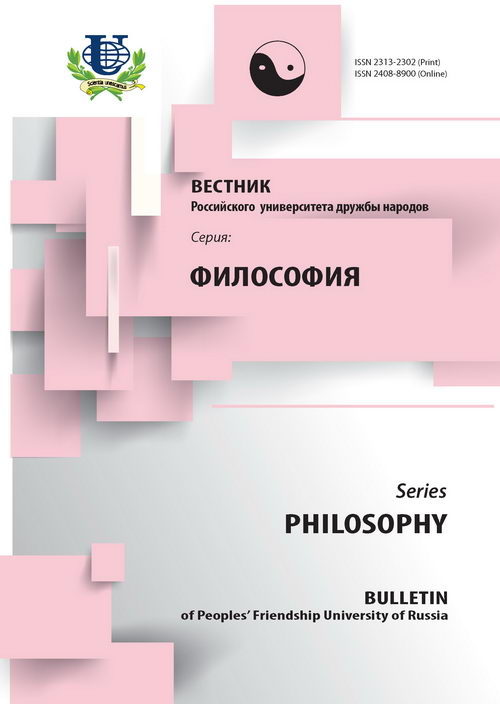The concept of pugdala in the buddhist school of pudgalavāda: the problem of interpretation and the evolution of the conception
- Authors: Titlin LI1
-
Affiliations:
- Institute of Philosophy, Russian Academy of Sciences
- Issue: No 1 (2014)
- Pages: 105-111
- Section: Articles
- URL: https://journals.rudn.ru/philosophy/article/view/11744
- ID: 11744
Cite item
Full Text
Abstract
The article investigates the notion of the self in Pudgalavāda — one of the least studied schools of Buddhism. The Pudgalavāda is an “unorthodox” trend of early Buddhism, which holds the doctrine of the existence of the self, or person — pudgala. The author examines the history of the formation of the Pudgalavāda, makes an overview of available literature on the topic and analyzes the concept of the self in the key texts of this philosophical trend, analyzes in detail the philosophical arguments of debating parties — classical Buddhism and Pudgalavāda Buddhism. The author comes to the conclusion that the apparent contradictions in the interpretation of pudgala can be explained by the consistent and logical evolution in the understanding of the concept of pudgala in the school of Pudgalavāda. The article will be of interest to researchers in the fields of history of philosophy, philosophy of mind, cognitive psychology and to scholars investigating the problem of the self.
About the authors
L I Titlin
Institute of Philosophy, Russian Academy of Sciences
Email: hphilosophy@mail.ru
Department for Oriental Philosophy Studies
References
Supplementary files















